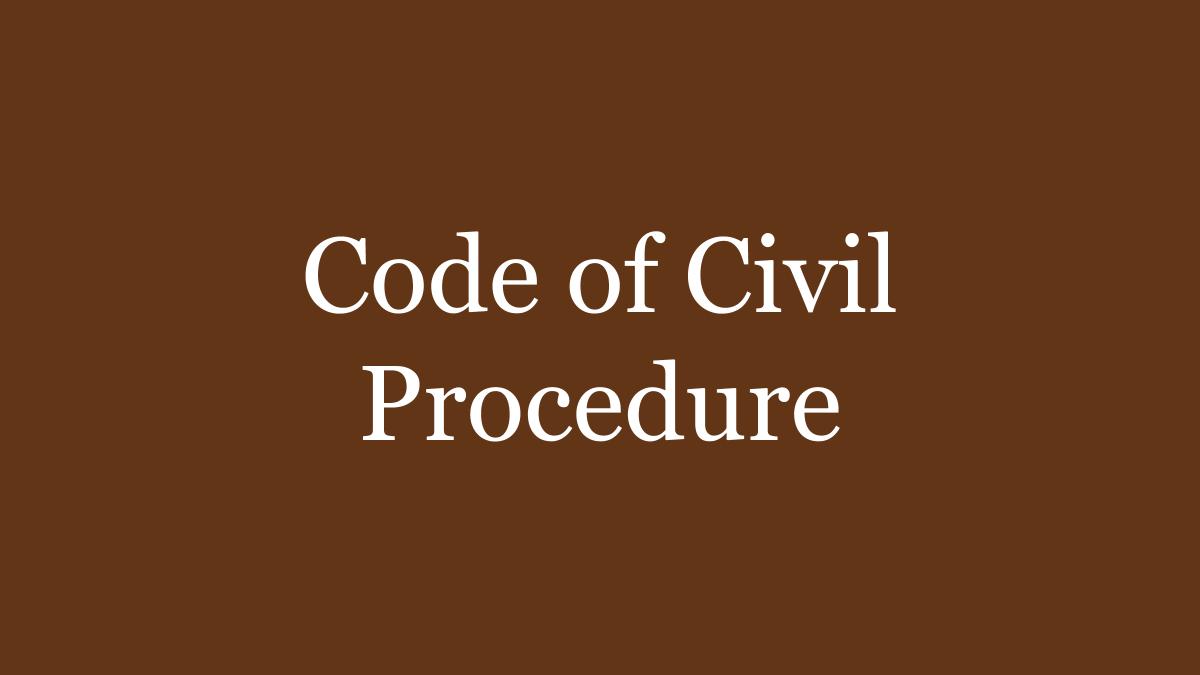Section 20 of CPC is relevant for the purpose at this juncture, which provides as, other suits to be instituted where defendants reside or cause of action arises subject to the limitations aforesaid, every suit shall be instituted in a court within the local limits of whose jurisdiction. The judgment was given by the High court of Chhattisgarh in the case of Jayant Jha vs. Manager Somna Collery, Bijuri, Anuppur M.P. Case no. [40 of 2017]
By the Hon’ble Shri Sanjay S. Agrawal, J. The counsel for petitioner was Shri Parag Kotecha, Advocate and counsel for respondent represented by Shri Vinod Deshmukh, Advocate.
The Plaintiff, who is the Proprietor of Ritika Enterprises, instituted a suit claiming recovery of Rs.7,47,499/- by submitting interi alia that he supplied spare parts of the machine described in Plaint schedule-‘A’ to the Defendants i.e. Somna Colliery, Bijuri, District Anuppur (M.P.). According to the Plaintiff, the Defendants have failed to make their payment despite the delivery of the alleged materials, which led to the issuance of the Demand Notice dated 16.09.2009. However, in spite of that, the same was not paid; therefore, he has been constrained to institute the suit in the instant nature instituted on 25.09.2010.
It was observed by the trial Court while taking note of the explanation to Section 20 of CPC and that by relying upon the principles laid down by the Supreme Court in the matter of Patel Roadways Limited, Bombay vs. Prasad Trading Company reported in (1991) 4 Supreme Court Cases 270 that since the cause of action has arisen at Somna Colliery, Bijuri, District Anuppur (M.P.), where the disputed materials alleged to have been delivered, therefore, the cause of action has arisen at the staid place which is beyond the territorial jurisdiction of this Court and accordingly, the claim as made has been held to be barred by jurisdiction under Section 20 of CPC and the Plaint has been directed to be returned in exercise of the powers enumerated under Order 7 Rule 10 of CPC for its presentation before the competent Court having its territorial jurisdiction by its separate order, which was passed on the same day, i.e. 23.12.2016. This is the order, which has been impugned by way of this Appeal.
The counsel for petitioner said that the court misinterpreting the provisions prescribed under Section 20 of CPC, has erred in holding that it has no jurisdiction to entertain the suit. Further counsel said that the suit can be instituted where Defendants reside or where the cause of action arises and since the business of Defendants is at Manendragarh, therefore, the suit ought not to have been held to be barred by jurisdiction.
The court rely upon the principles laid down by the Supreme Court in the matter of New Moga Transport Co. through its Proprietor Krishan Lal Jhanwar vs. United India Insurance Co. Ltd and others (4 SCC 677 : AIR 2004 SC 2154) which read as under “On a plain reading of the Explanation to Section 20 CPC it is clear that the Explanation consists of two parts: (i) before the word “or” appearing between the words “office in India” and the word “in respect of”, and (ii) the other thereafter. The Explanation applies to a defendant which is a corporation, which term would include even a company. The first part of the Explanation applies only to such corporation which has its sole or principal office at a particular place. In that event, the court within whose jurisdiction the sole or principal office of the company is situate will also have jurisdiction inasmuch as even if the defendant may not actually be carrying on business at that place, it will be deemed to carry on business at that place because of the fiction created by the Explanation. The latter part of the Explanation takes care of a case where the defendant does not have a sole office but has a principal office at one place and has also a subordinate office at another place. The expression “at such place” appearing in the Explanation and the word “or” which is disjunctive clearly suggest that if the case falls within the latter part of the Explanation it is not the court within whose jurisdiction the principal office of the defendant is situate but the court within whose jurisdiction it has a subordinate office which alone has the jurisdiction “in respect of any cause of action arising at any place where it has also a subordinate office.”
The court said that the, after applying the aforesaid principles to the case in hand where admittedly no cause of action, either wholly or in part as provided under clause (c) of Section 20 CPC arose in the Court of Manendragarh, the Head Office of the Defendants, and as the disputed spare parts of the machine alleged to have been supplied to the Office of Somna Colliery, Bijuri, District Anuppur (M.P.), the cause of action has, therefore, arisen at the staid place, which is beyond the territorial jurisdiction of the Court below. In view of the said background, the trial Court has not committed any illegality in returning the Plaint in exercise of the powers under Order 7 Rule 10 of CPC and I do not find any legal infirmity in the same so as to call for any interference in this appeal. The Appeal is accordingly dismissed with the aforesaid observation. No order as to costs.


